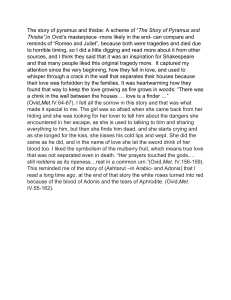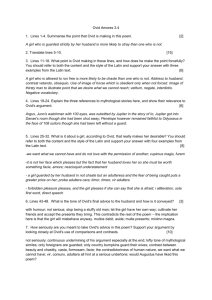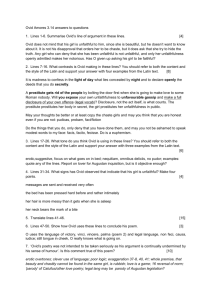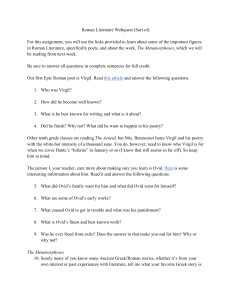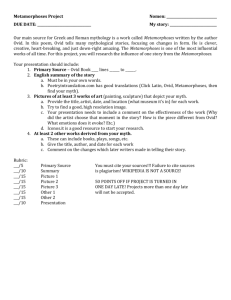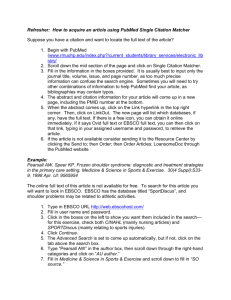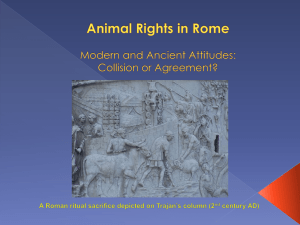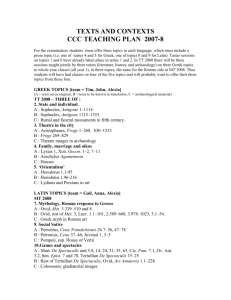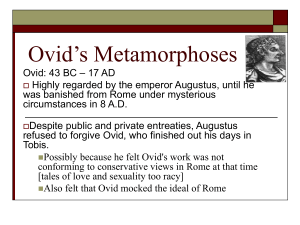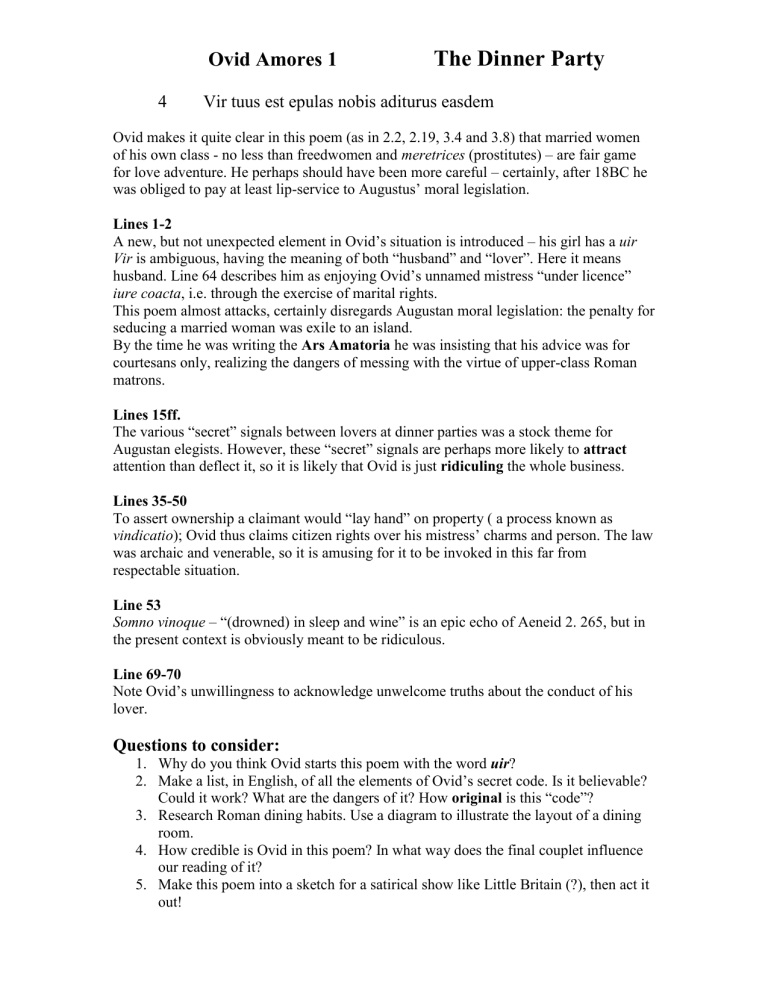
Ovid Amores 1 4 The Dinner Party Vir tuus est epulas nobis aditurus easdem Ovid makes it quite clear in this poem (as in 2.2, 2.19, 3.4 and 3.8) that married women of his own class - no less than freedwomen and meretrices (prostitutes) – are fair game for love adventure. He perhaps should have been more careful – certainly, after 18BC he was obliged to pay at least lip-service to Augustus’ moral legislation. Lines 1-2 A new, but not unexpected element in Ovid’s situation is introduced – his girl has a uir Vir is ambiguous, having the meaning of both “husband” and “lover”. Here it means husband. Line 64 describes him as enjoying Ovid’s unnamed mistress “under licence” iure coacta, i.e. through the exercise of marital rights. This poem almost attacks, certainly disregards Augustan moral legislation: the penalty for seducing a married woman was exile to an island. By the time he was writing the Ars Amatoria he was insisting that his advice was for courtesans only, realizing the dangers of messing with the virtue of upper-class Roman matrons. Lines 15ff. The various “secret” signals between lovers at dinner parties was a stock theme for Augustan elegists. However, these “secret” signals are perhaps more likely to attract attention than deflect it, so it is likely that Ovid is just ridiculing the whole business. Lines 35-50 To assert ownership a claimant would “lay hand” on property ( a process known as vindicatio); Ovid thus claims citizen rights over his mistress’ charms and person. The law was archaic and venerable, so it is amusing for it to be invoked in this far from respectable situation. Line 53 Somno vinoque – “(drowned) in sleep and wine” is an epic echo of Aeneid 2. 265, but in the present context is obviously meant to be ridiculous. Line 69-70 Note Ovid’s unwillingness to acknowledge unwelcome truths about the conduct of his lover. Questions to consider: 1. Why do you think Ovid starts this poem with the word uir? 2. Make a list, in English, of all the elements of Ovid’s secret code. Is it believable? Could it work? What are the dangers of it? How original is this “code”? 3. Research Roman dining habits. Use a diagram to illustrate the layout of a dining room. 4. How credible is Ovid in this poem? In what way does the final couplet influence our reading of it? 5. Make this poem into a sketch for a satirical show like Little Britain (?), then act it out!
